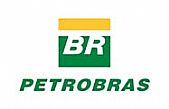Energy
Petrobras Earnings Slip as Government Keeps Voters Happy
Published:
Last Updated:

Earnings per share (EPS) totaled $0.21 in the second quarter, below a consensus estimate of $0.24 compiled by Bloomberg.
At the time the company released its earnings report the board also released this statement:
Petrobras’ Board of Directors denied as untrue any speculation about the resignation or dismissal of CEO Maria das Graças Silva Foster.
We can find no evidence of any such speculation.
The company set aside about $1.04 billion to fund a voluntary separation program that saw more than 8,000 employees (about 12.4% of the company’s total workforce) accept the early retirement option. Petrobras blamed that and increased write-offs for dry or uncommercial wells, other write-offs, lower gains from asset sales, and higher selling costs for the 25% drop in first half net income.
Petrobras cut export sales in order to meet demand in its home market, but the government cap on pump prices makes it impossible for the company to meet revenue and income goals. Refined product sales rose 3% in the first half of the year, but the realized price for a barrel of crude was about $98.46, well below the $109.63 per barrel international price of Brent crude.
There’s no chance the government will allow pump prices to rise before the October elections. None. Zero.
Crude production rose 3% sequentially, to 2.38 million barrels of oil equivalent per day of domestic production and 186,000 barrels a day from the company’s international fields. Combined with natural gas and other unconsolidated production, total hydrocarbon production rose to 2.6 million barrels a day in the second quarter and 2.55 million barrels a day on average for the first half of the year.
Petrobras cut its spending by 6% in the first half of 2014 to $18.13 billion, but the company’s net debt rose by 1 point to 40% and total debt rose 15% in the first half of the year to $134.44 billion
The company continues to target total production in 2018 of 3.9 million barrels of oil equivalent a day, rising to 5.2 million barrels a day by 2020. That’s an increase of 1.3 million barrels a day by 2018 from second-quarter levels, and a doubling of production by 2020. To call that optimistic is putting it mildly.
We’ve noted before that the structure of Petrobras is not very friendly to shareholders. The government controls the company and can force it to accept price cuts Petrobras can’t afford or forsake price hikes the company needs in order to make a profit. The company’s hands are essentially tied and there is not a lot that it or investors can do about it.
The company’s ADRs closed down about 2.6% Friday at $15.94 in a 52-week range of $10.20 to $17.97. Shares dropped another 0.9% in after-hours trading to $15.80. One ADR is equal to two ordinary shares. The consensus price target on the stock is a around $19 before today’s report.
ALSO READ: 11 Countries Near Bankruptcy
After two decades of reviewing financial products I haven’t seen anything like this. Credit card companies are at war, handing out free rewards and benefits to win the best customers.
A good cash back card can be worth thousands of dollars a year in free money, not to mention other perks like travel, insurance, and access to fancy lounges.
Our top pick today pays up to 5% cash back, a $200 bonus on top, and $0 annual fee. Click here to apply before they stop offering rewards this generous.
Flywheel Publishing has partnered with CardRatings for our coverage of credit card products. Flywheel Publishing and CardRatings may receive a commission from card issuers.
Thank you for reading! Have some feedback for us?
Contact the 24/7 Wall St. editorial team.